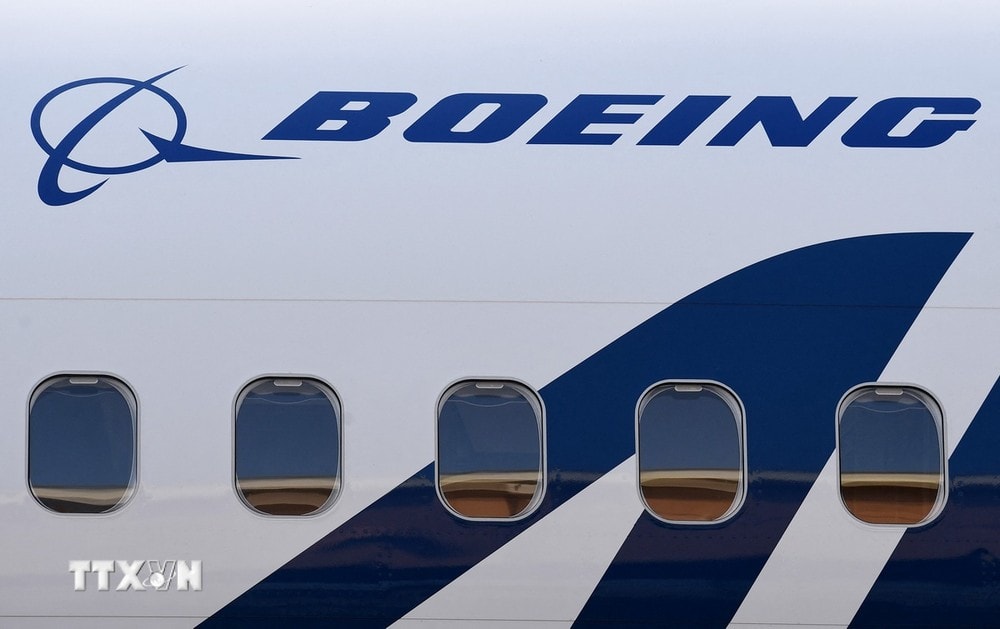Boeing has given workers until midnight on September 27 (local time) to approve their "best and final" offer to the company's proposed wage increase.

Boeing Co. on Tuesday offered striking workers a 30 percent hourly wage increase, improving on an initial offer in an effort to end a 10-day work stoppage that has shuttered factories in the Seattle area.
“Giant” Boeing gave workers until midnight on September 27 (local time) to approve the company's “best and final” offer.
The International Association of Machinists and Aerospace Workers (IAM) said it is reviewing the proposal.
About 33,000 IAM members went on strike on September 13 after voting overwhelmingly to reject an earlier offer from Boeing.
The move essentially shuts down factories that assemble the 737 MAX and 777 aircraft. The 30% pay increase is higher than the previously proposed 25% increase.
IAM leaders initially approved a 25% increase before the grassroots workforce strongly rejected it.
Workers have demanded a wage increase of up to 40%. They say that over the past decade, meager wage increases have put pressure on family budgets in an expensive part of the US during a period of consumer price inflation.
Boeing’s new proposal also restores an annual bonus that was eliminated in the previous version. Workers have complained that removing the bonus means the previous proposal’s pay increase is not as large as the company announced.
The new proposal also doubles the deal approval bonus to $6,000, and increases the company's contribution to employees' 401K private retirement plans.
But the proposed amendment does not restore pensions, which is a demand of some workers.
The revised deal retains other provisions, such as Boeing’s commitment to build its next new plane in the Pacific Northwest. The two sides held two days of mediation last week with the help of government officials.
Boeing CEO Kelly Ortberg said ending the strike was a "top priority".
Meanwhile, IAM President Brian Bryant said the latest proposal from Boeing proves the legitimacy of the workers' decision to strike.
Boeing shares have fallen 36% since the start of 2024. The strike is adding to the company’s woes. If it continues, it will not only hurt Boeing financially, but also airlines waiting to receive the planes and Boeing’s parts suppliers.
TD Cowen research said that if the strike lasts 50 days, the world's leading aircraft manufacturer could lose $3-3.5 billion.
Air India CEO Campbell Wilson said that even before the strike, Boeing 737 MAX deliveries were showing signs of delay, following the incident of an Alaska Airlines plane disintegrating in January 2024.
Two credit rating agencies S&P Global Ratings and Moody's have downgraded Boeing's credit rating to near "non-investment grade".
Boeing previously said it had received total orders for 72 new aircraft in July 2024, compared with 59 for Airbus.
The bulk of the orders came from aircraft leasing companies, including Boeing's 737 Max, and many were linked to the Farnborough Air Show in July 2024, where many commercial aircraft sales take place.
However, the positive numbers are still very modest compared to what Boeing achieved last year. Boeing's orders have dropped sharply since the Alaska Airlines plane door failure earlier this year.
The July order brings Boeing’s total for the year to 228 commercial aircraft. Excluding cancellations, Boeing has a net order book of 186 for the January-July 2024 period.
This figure is much lower than the 579 orders that this "giant" received in the same period in 2023, and also behind the levels of 386 total orders and 367 net orders that Airbus recorded this year up to the end of July.
Boeing also recently announced that it delivered 43 aircraft to customers in July 2024, equal to the number in July 2023 and slightly down from the 44 aircraft delivered in June 2024.
However, the number of aircraft delivered this year has decreased by 29% compared to the same period in 2023, reaching only 218 commercial aircraft.
Meanwhile, Airbus delivered 400 aircraft in the period from January to July 2024.
In early August 2024, Boeing said it planned to make design changes to prevent mid-air emergency exit door failures similar to the incident that occurred on an Alaska Airlines 737 MAX 9 flight in January 2024.
The incident has plunged the US aircraft maker into its second major crisis in recent years.
TH (synthesis)